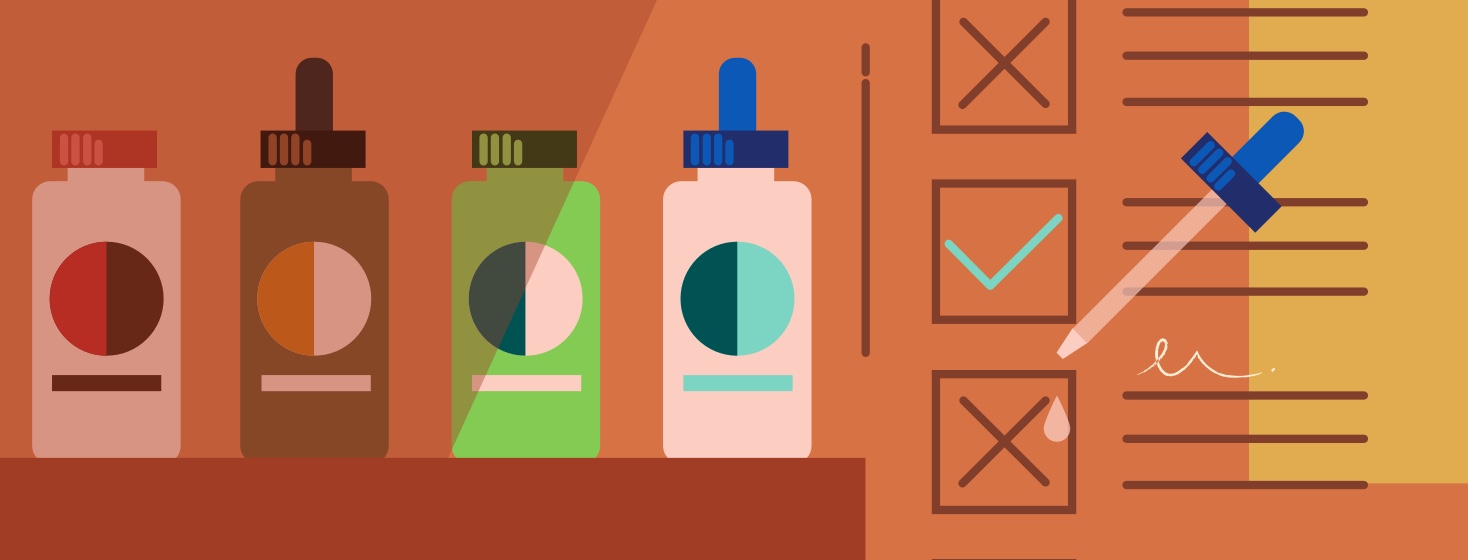CKD and Supplements: A Guide to Safe Choices
Reviewed by: HU Medical Review Board | Last reviewed: February 2023 | Last updated: October 2023
There are over 15 million people living with moderate or advanced chronic kidney disease (CKD) in the United States. And a national survey from 2011 to 2014 showed that nearly one-third of the US population takes supplements. However, not all supplements are safe to take when living with CKD.1,2
The kidneys play an important role in your body. They clean out waste and other dangerous substances. They filter all the blood in your body, removing any extra minerals or waste products and creating pee (urine).3
When you have CKD, your kidneys are not able to filter your blood as well. This means it is very important to avoid drugs that could make your kidneys even worse or cause extra build-up of waste products.3
What should I avoid?
If you have CKD, your doctor may tell you to avoid eating too much of certain minerals. When you get too much of these minerals, your kidneys are not able to filter them out well. This can lead to dangerously high levels of those minerals in your body. Examples include potassium and phosphorus. It is important to be aware of the supplements that may contain these minerals.3
In addition, certain herbs and medicines can harm your kidneys. If your kidneys are already damaged, you should not take them. Herbs to avoid include cat's claw, goldenrod, and licorice root. Medicines to avoid include nonsteroidal anti-inflammatory drugs (NSAIDS).3,4
Along with taxing or damaging your kidneys, some herbal supplements can affect how your prescription medicine works. This is especially true if you have had a kidney transplant and are taking anti-rejection or immunosuppressive drugs. Some herbal supplements could cause your kidney transplant to fail.3
If you are not sure whether a supplement or drug is safe to take, talk to your doctor. Your pharmacist also may be able to advise you.3
Potassium
People with CKD may need to avoid supplements with potassium. Supplements that contain potassium include:3
- Coriander
- Evening primrose
- Gotu kola
- Kelp
- Mugwort
- Sassafras
- Scullcap
- Turmeric
Phosphorus
Another mineral that your doctor may want you to avoid is phosphorus. Supplements that have phosphorus include:3
- American ginseng
- Bitter melon
- Borage leaf
- Flaxseed
- Milk thistle
- Purslane
- Shepherd’s purse
- Stinging nettle leaf
- Water lotus
Other supplements to avoid
Some supplements are actively harmful to the kidneys. Others can cause high blood pressure, which makes it more difficult for the kidneys to do their job. If you have CKD, avoid supplements with:3
- Cat’s claw
- Creatine
- Goldenrod
- Horsetail
- Licorice root
- Parsley root
- Pennyroyal
- Ruta graveolens
- Yohimbe
NSAIDs
Over-the-counter drugs are usually safe for anyone to take. However, some drugs that you can buy without a prescription can harm your kidneys. NSAIDs are a very common pain reliever, but people with CKD should not take them. NSAIDs include:4
- Aspirin
- Ibuprofen (Advil or Motrin)
- Naproxen (Aleve)
What can I take instead?
Always talk to your doctor before beginning any new medicines or supplements. Here are some suggestions for medicines that may be safer to take if you have CKD:5
- Instead of ibuprofen, try acetaminophen (Tylenol).
- Instead of Maalox, try Tums. But note that heartburn medicines should only be used occasionally. If you need them often, speak to your doctor.
- Instead of milk of magnesia, try Miralax.
- Instead of Sudafed, try nasal saline spray.
Other things to know about supplements
Supplements are not regulated by the US Food and Drug Administration (FDA) the same way other drugs are. This means that no outside agency confirms the ingredients or suggested dose.6,7
For example, a fish oil supplement may have more or less fish oil than listed on the label. A supplement may also contain ingredients that are not labeled correctly or at all. This can be dangerous. It can lead to taking too much or taking unwanted ingredients.6,7
The FDA created good manufacturing practices (GMPs) to help this situation. GMPs are guidelines for companies to follow when making supplements. The FDA rarely inspects facilities making supplements in the United States. Companies outside the United States do not have these inspections. But many more supplements are sold than are tested. Your doctor can help you decide if a supplement is safe.6,7
This list does not include every supplement that is unsafe to take if you have CKD. Before beginning treatment for CKD, tell your doctor about all your health conditions and any other drugs, vitamins, or supplements you take. This includes over-the-counter drugs.3
This or That
Are you satisfied with your current CKD treatment plan?

Join the conversation